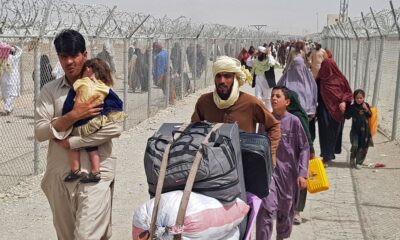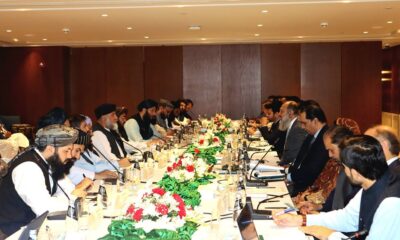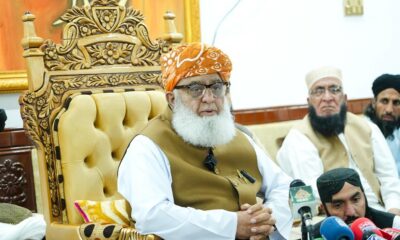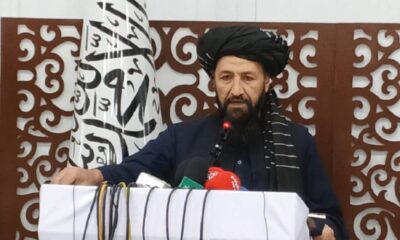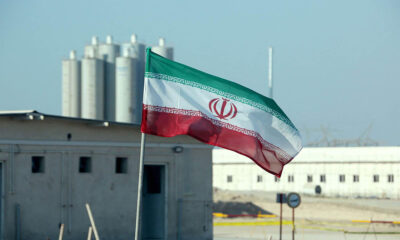Regional
Iran wants indirect talks with US, warns regional countries over strikes against it
Trump has said he would prefer a deal over Iran’s nuclear programme to a military confrontation and he said on March 7 he had written to Khamenei to suggest talks.
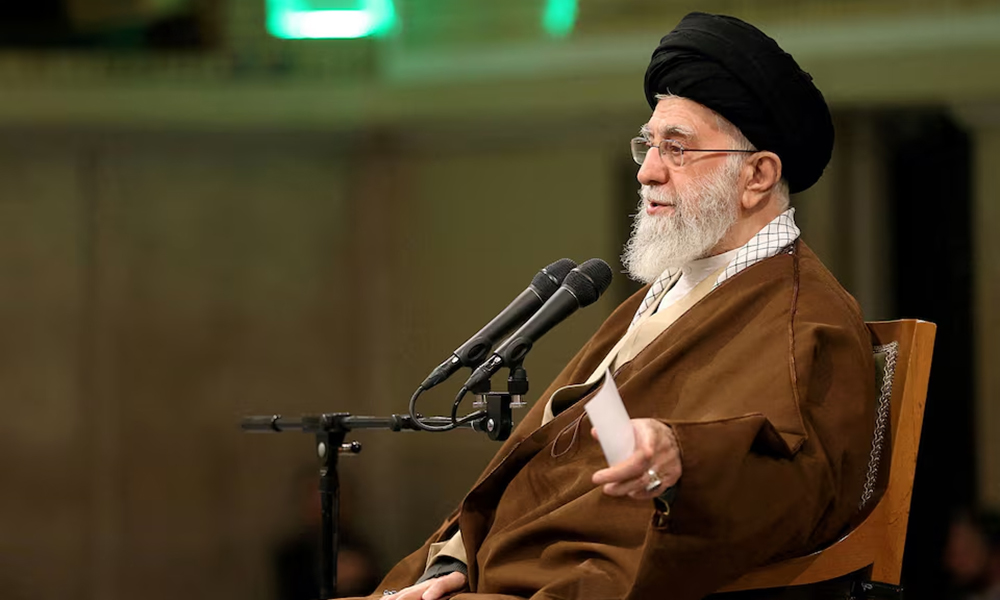
Iran is pushing back against U.S. demands that it directly negotiate over its nuclear programme or be bombed, warning neighbours that host U.S. bases that they could be in the firing line if involved, a senior Iranian official said.
Although Iran has rejected U.S. President Donald Trump’s demand for direct talks, it wants to continue indirect negotiations through Oman, a longtime channel for messages between the rival states, said the official, who spoke to Reuters on condition of anonymity.
“Indirect talks offer a chance to evaluate Washington’s seriousness about a political solution with Iran,” said the official.
Although that path could be “rocky”, such talks could begin soon if U.S. messaging supported it, the official said.
Iran has issued notices to Iraq, Kuwait, the United Arab Emirates, Qatar, Turkey and Bahrain that any support for a U.S. attack on Iran, including the use of their air space or territory by U.S. military during an attack, would be considered an act of hostility, the official said.
Such an act “will have severe consequences for them”, the official said, adding that Supreme Leader Ayatollah Ali Khamenei had placed Iran’s armed forces on high alert.
Warnings by Trump of military action against Iran have jangled already tense nerves across the region after open warfare in Gaza and Lebanon, military strikes on Yemen, a change of leadership in Syria and Israeli-Iranian exchanges of fire.
Worries of a wider regional conflagration have unsettled states around the Gulf, a body of water bordered on one side by Iran and on the other by U.S.-allied Arab monarchies that carries a significant proportion of global oil supplies.
Spokespeople for the governments of Iraq, Kuwait, the UAE, Qatar and Bahrain did not immediately respond to requests for comment. Turkey’s Foreign Ministry said it was not aware of a warning but that such messages could be conveyed by other channels.
On Wednesday, Iranian state media reported that Kuwait had reassured Iran that it would not accept any aggressive action being directed at other countries from its soil.
Iran’s ally Russia said on Thursday that U.S. threats of military strikes against the Islamic Republic were unacceptable and on Friday called for restraint.
Iran is trying to gain more support from Russia, but is sceptical about Moscow’s commitment to its ally, said a second Iranian official. This “depends on the dynamics” of the relationship between Trump and Russian President Vladimir Putin, the official said.
Trump has said he would prefer a deal over Iran’s nuclear programme to a military confrontation and he said on March 7 he had written to Khamenei to suggest talks.
The first Iranian official said a first round of indirect talks could involve Omani mediators shuttling between the Iranian and U.S. delegations. Khamenei has authorised Foreign Minister Abbas Araqchi or his deputy, Majid Takht-e Ravanchi, to attend any talks in Muscat.
Oman’s government spokesperson did not immediately respond to a request for comment.
However, the official believed there was a window of around two months to agree a deal, citing worries that Iran’s long-time foe Israel might launch its own attack if talks took longer, and that it could trigger a so-called “snap back” of all international sanctions on Iran to prevent the country from acquiring a nuclear weapon.
Iran has long denied wanting to develop a nuclear weapon. However, it is “dramatically” accelerating enrichment of uranium to up to 60% purity, close to the roughly 90% weapons-grade level, the U.N. nuclear watchdog has warned.
Western states say there is no need to enrich uranium to such a high level under any civilian program and that no other country has done so without producing nuclear bombs.
While Iran has said it will consider talks with the U.S. if the aim was to address concerns over its programme, it has rejected holding any direct negotiations when the U.S. is making threats and has said its missile programme would be off limits.
A senior Iranian military commander, the Islamic Revolutionary Guards Corps’ Amirali Hajizadeh, had implied on Monday that U.S. bases in the region could be targeted in any conflict.
In 2020, Iran targeted U.S. bases in Iraq after the assassination of Qassem Soleimani, the head of the IRGC’s Quds Force, in a U.S. missile strike in Baghdad.
Regional
Iran says its right to uranium enrichment is non-negotiable
Last weekend’s U.S.-Iran talks in Oman were described by both sides as positive and constructive.
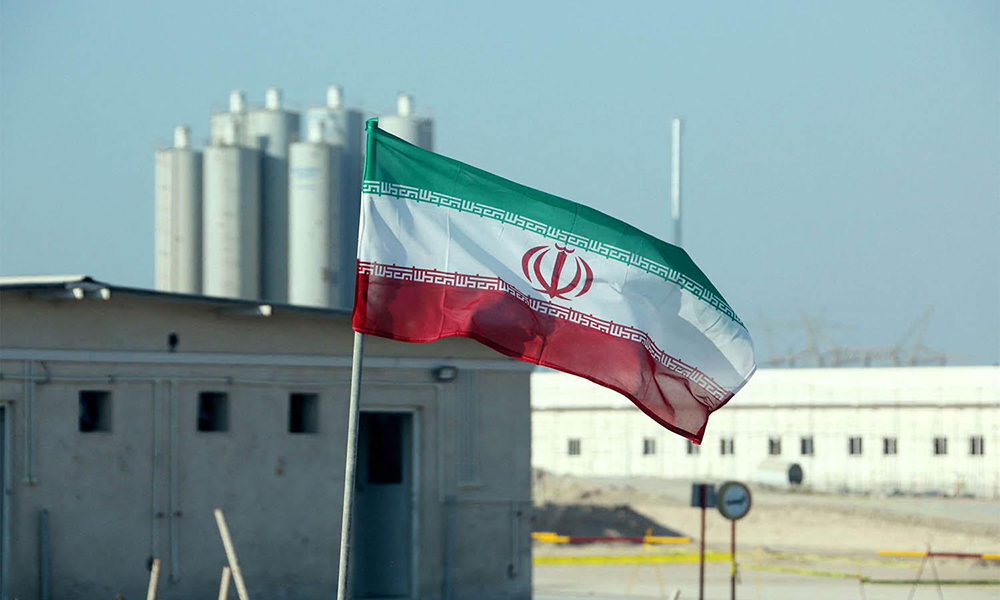
Iran’s right to enrich uranium is not negotiable, Foreign Minister Abbas Araqchi said on Wednesday ahead of a second round of talks set to take place in Rome this weekend with the United States about Tehran’s disputed nuclear programme.
The talks, which began in Oman on Saturday with the Gulf state acting as mediator, are the first between the two adversaries under U.S. President Donald Trump, who has threatened military action if there is no deal.
Araqchi was responding to a comment made on Tuesday by top U.S. negotiator Steve Witkoff, who said the Islamic Republic must “stop and eliminate its nuclear enrichment” to reach a deal with Washington.
“We have heard contradictory statements from Witkoff, but real positions will be made clear at the negotiating table,” Araqchi was quoted by Iranian state media as saying in Tehran.
“We are ready to build trust regarding possible concerns over Iran’s enrichment, but the principle of enrichment is not negotiable.”
Last weekend’s U.S.-Iran talks in Oman were described by both sides as positive and constructive.
Western powers say Iran is refining uranium to a high degree of fissile purity beyond what is justifiable for a civilian energy programme and close to the level suitable for atomic bomb fuel. Iran has long denied seeking nuclear weapons.
Iranian media said on Wednesday, without citing sources, that the second round of talks would be held in the Italian capital Rome on Saturday. It was earlier announced that the talks would resume in Oman.
Sources briefed on the matter confirmed the change of venue to Reuters.
Iran’s foreign ministry spokesperson Esmaeil Baghaei compared the venue of the Iran-US nuclear talks to a goalpost in a post on X on Wednesday, saying moving it might “jeopardize any beginning” and that changing it was a “professional error”.
A diplomatic source said Rafael Grossi, director general of the International Atomic Energy Agency, the U.N. nuclear watchdog whose inspectors monitor Iranian nuclear sites, had also been invited to Rome for the occasion of the talks.
Italian Foreign Minister Antonio Tajani confirmed the talks would be in held in Rome but said Italy would not be involved.
“Italy simply wants to be a bridge for peace; we have no ambitions of any kind. Such a delicate negotiation is up to the parties involved and their willingness to achieve a concrete result,” Tajani said in a statement.
On Thursday Araqchi will deliver a message from Iranian Supreme Leader Ali Khamenei to Russian President Vladimir Putin during a trip to Russia, state media reported.
“Amidst important global developments, close, continuous and trusting communication between Iranian and Russian authorities will serve regional as well as international peace and stability,” Iranian Ambassador Kazem Jalali wrote on X.
The Kremlin on Tuesday declined to comment when asked if Russia was ready to take control of Iran’s stocks of enriched uranium as part of a possible future nuclear deal between Iran and the United States.
Britain’s Guardian newspaper reported that Tehran was expected to reject a U.S. proposal to transfer its stockpile of enriched uranium to a third country such as Russia as part of an deal Washington is seeking to curb Iran’s nuclear activity.
Regional
Trump opposed a planned Israeli strike on Iranian nuclear sites, NYT reports
The New York Times said U.S. assistance was required not just to defend Israel from Iranian retaliation but also ensure the attack was successful.
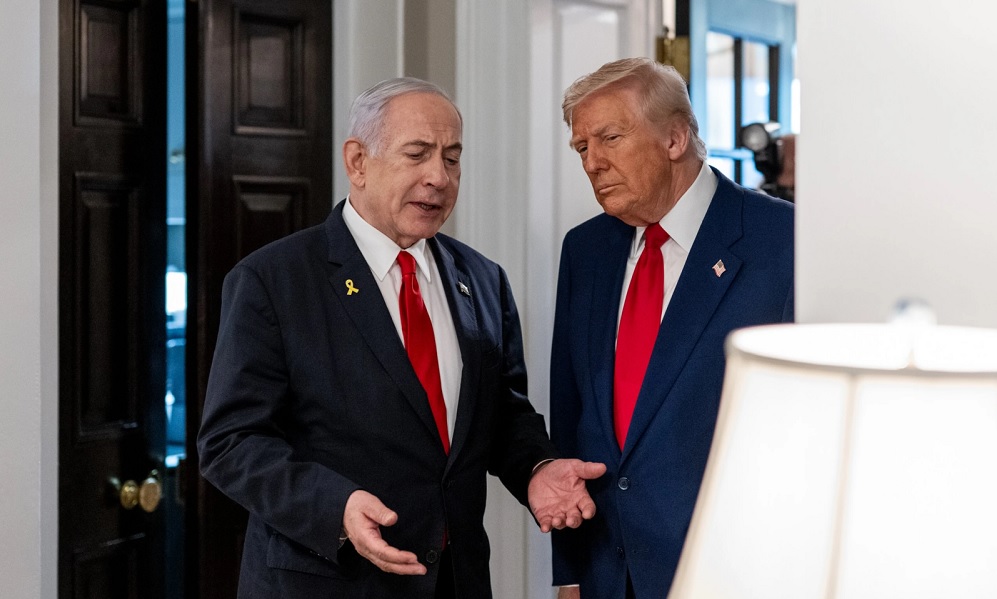
U.S. President Donald Trump blocked a planned Israeli strike on Iranian nuclear sites in favor of negotiating a deal with Iran to limit its nuclear program, the New York Times reported on Wednesday, citing administration officials and others.
Israel had developed plans to attack the sites in May, according to the newspaper, which added that the goal was to set back Iran’s ability to develop a nuclear weapon by a year or more, according to Reuters.
The New York Times said U.S. assistance was required not just to defend Israel from Iranian retaliation but also ensure the attack was successful.
After months of internal debate, Trump made the decision to seek negotiations with Iran rather than support military action.
The U.S. and Iran held talks in Oman last Saturday – the first time during a Trump administration, including his 2017-2021 first term. Both countries described the talks as “positive” and “constructive”.
A second round is scheduled for Saturday, and a source briefed on the planning said the meeting was likely to be held in Rome.
Regional
Khamenei downplays US talks prospects as some Iranians’ hopes stir, currency gains
Iran’s clerical rulers have publicly said that demands such as dismantling the country’s peaceful nuclear programme or its conventional missile capabilities were off the table.
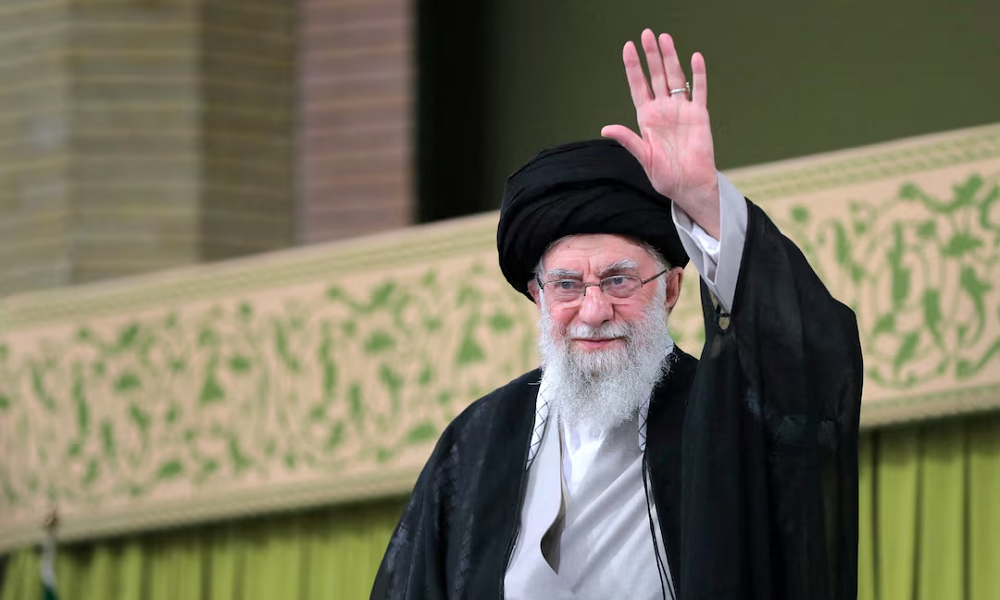
Iran’s Supreme Leader Ayatollah Ali Khamenei sought on Tuesday to play down expectations of a breakthrough in nuclear talks with the U.S., following stirrings of hope among some Iranians weary of economic hardships that have at times sparked public unrest.
Failure to reach a deal with President Donald Trump to end Iran’s decades-long dispute with the West could profoundly hurt the Islamic Republic, Iranian politicians and insiders have said, even if Washington is subsequently portrayed by Tehran as the guilty party.
A second round of nuclear talks will be held in Muscat on April 19.
Iran’s battered rial currency has gained some 20% against the dollar in the past few days, with many Iranians hoping an deal to end Iran’s economic isolation may be within reach.
“We are neither overly optimistic nor pessimistic regarding them. After all, it is a process which was decided and its first steps have been well implemented,” Khamenei said in a meeting with officials, according to state media.
White House special envoy Steve Witkoff, who leads the talks with Iran, said that Trump has asked him to “create a tough, fair deal that will endure.”
“Any final arrangement must set a framework for peace, stability, and prosperity in the Middle East – meaning that Iran must stop and eliminate its nuclear enrichment and weaponization program,” Witkoff posted on X on Tuesday.
Iran’s clerical rulers have publicly said that demands such as dismantling the country’s peaceful nuclear programme or its conventional missile capabilities were off the table.
Tehran has approached the talks warily, doubting the likelihood of an agreement and suspicious of Trump, who abandoned Tehran’s 2015 nuclear pact with six world powers during his first term in 2018. He has repeatedly threatened to use military force if there is no deal.
“From here on, it (the talks) must be followed through carefully, with red lines clearly defined for both the other side and for us. The negotiations may lead to results, or they may not,” said Khamenei.
“Avoid linking the country’s fate to these talks.”
Some Iranian officials have suggested that Trump’s business background could make him more receptive to a deal if it includes economic incentives, such as a potential purchase of U.S.-made planes or unlocking of Iran’s economy for U.S. investors.
But a number of Iranian newspapers have warned about inflating public expectations with “baseless hype”.
“Why do you make promises about the talks that cannot be fulfilled? … Don’t undermine public trust with promises made only for fleeting media attention,” wrote the Khorasan newspaper on Monday, in response to comments by an official that raised hopes of economic breakthroughs from the talks.
Since relations with Washington collapsed after Iran’s 1979 Islamic revolution that ousted the U.S.-backed Shah, enmity toward the U.S. has been a rallying point for Iran’s rulers.
But inflation, unemployment and lack of investment as a result of crippling sanctions, reimposed after Trump ditched the 2015 nuclear pact, persuaded Khamenei to support talks with the Trump administration.
Tehran’s concerns were exacerbated by Trump’s speedy revival of his first term’s “maximum pressure” campaign aimed at driving Iran’s oil exports towards zero with more sanctions.
Since 2019, Iran has far surpassed its uranium enrichment limits, according to the International Atomic Energy Agency (IAEA). Tehran is producing stocks of fissile purity well above what Western powers say is justifiable for a civilian energy programme and close to weapons grade.
Tehran has long denied seeking nuclear weapons.
“What Tehran wants in return (from the U.S.) is for sanctions to be removed on several sectors. Once those sanctions are removed, the U.S. cannot bring them back under other pretexts.” the state-run Tehran Times newspaper reported on Monday.
-
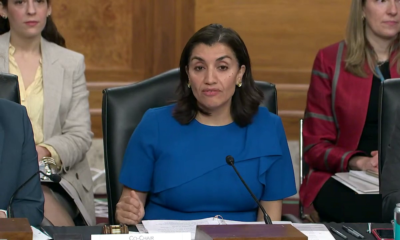
 Latest News5 days ago
Latest News5 days agoUS Senate convenes commission to review early years of Afghanistan war
-
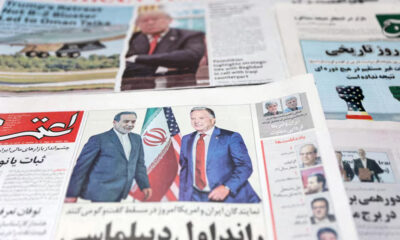
 Regional4 days ago
Regional4 days agoIran, US hold ‘positive’ talks in Oman, agree to resume next week
-
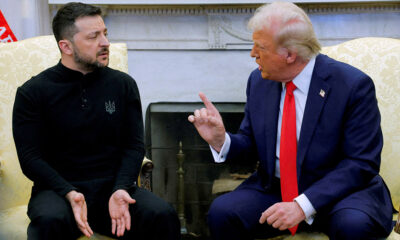
 World4 days ago
World4 days agoTrump says Ukraine talks may be going OK, but there is a time ‘to put up or shut up’
-
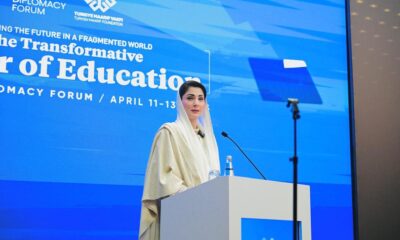
 Latest News4 days ago
Latest News4 days agoPakistan’s Punjab CM calls for ‘human response’ to Afghan girls’ education ban
-
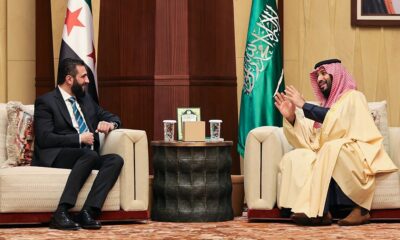
 Regional3 days ago
Regional3 days agoSaudi Arabia plans to pay off Syria’s World Bank debts – Reuters
-

 Latest News4 days ago
Latest News4 days ago6.1-magnitude earthquake shakes northern Afghanistan
-
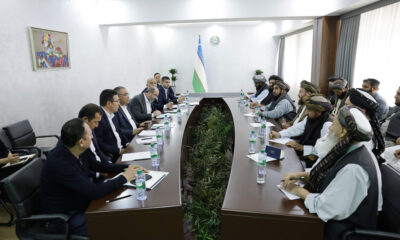
 Latest News3 days ago
Latest News3 days agoAfghanistan and Uzbekistan to expand cooperation in agriculture sector
-
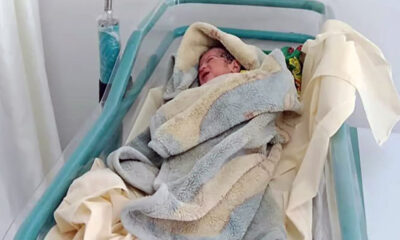
 Latest News2 days ago
Latest News2 days ago17 babies born at Torkham refugee centers in past two weeks


